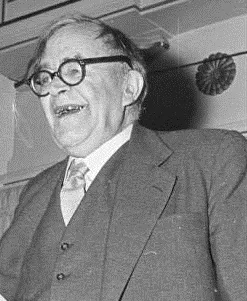
The Significance of Alfred Nobel Day: Celebrating Innovation and Peace
Every year on December 10th, Sweden honors Alfred Nobel Day or Nobeldagen, commemorating the life and legacy of Alfred Nobel, the inventor of dynamite and the founder of the Nobel Prizes. This day is not only a celebration of his contributions but also a reminder of the values for which the Nobel Prizes stand: excellence in scientific research, literature, and peace.
Who Was Alfred Nobel?
Born on October 21, 1833, in Stockholm, Sweden, Alfred Nobel was an inventor, engineer, and chemist, best known for inventing dynamite. Despite the practical applications of his invention, Nobel was deeply concerned about the consequences of his work, particularly its use in warfare. This prompted him to establish the Nobel Prizes, which are awarded annually to individuals and organizations that foster peace, intellect, and advancement in various fields.
The History of Alfred Nobel Day
The first Nobel Prizes were awarded on December 10, 1901, to mark the anniversary of Alfred Nobel's death in 1896. Since then, December 10 has been recognized as Alfred Nobel Day. This day serves not only to recognize laureates in Physics, Chemistry, Medicine, Literature, and Peace but also to reflect on Nobel’s vision of a better world.
Celebrations and Events
Alfred Nobel Day is celebrated across the globe, with the most notable ceremonies held in Stockholm and Oslo. In Stockholm, the Royal Swedish Academy of Sciences, the Nobel Assembly at The Karolinska Institute, and the Swedish Academy award the Nobel Prizes. The day is marked by grand ceremonies, including lectures, presentations, and formal banquets. In Oslo, the Nobel Peace Prize ceremony takes place at the Oslo City Hall, showcasing laureates dedicated to humanitarian causes.
Significance of the Nobel Prizes
The Nobel Prizes are vital in promoting intellectual and humanitarian work. Each award highlights individuals or organizations that have made significant contributions to humanity. The Nobel Peace Prize, in particular, draws attention to efforts in conflict resolution and the pursuit of peace. The legacy of the prizes continues to inspire future generations to pursue scientific endeavors, literary excellence, and peace-building initiatives.
Celebrating Innovation
Alfred Nobel Day encourages innovation across various fields. It serves as a platform for discussing scientific advancements and their societal impacts. Educational institutions often host seminars, workshops, and public discussions to engage students and the community in dialogues surrounding Nobel’s vision and laureates’ achievements. This helps foster a culture of curiosity and critical thinking among younger generations.
Conclusion
Alfred Nobel Day, or Nobeldagen, is more than just a date on the calendar; it is a celebration of humanity's achievements in science, literature, and peace. By commemorating the legacy of Alfred Nobel, we reflect upon the essential values of excellence, knowledge, and compassion. As we move forward, let us carry forth Nobel's vision and strive for a more peaceful and innovative world.






